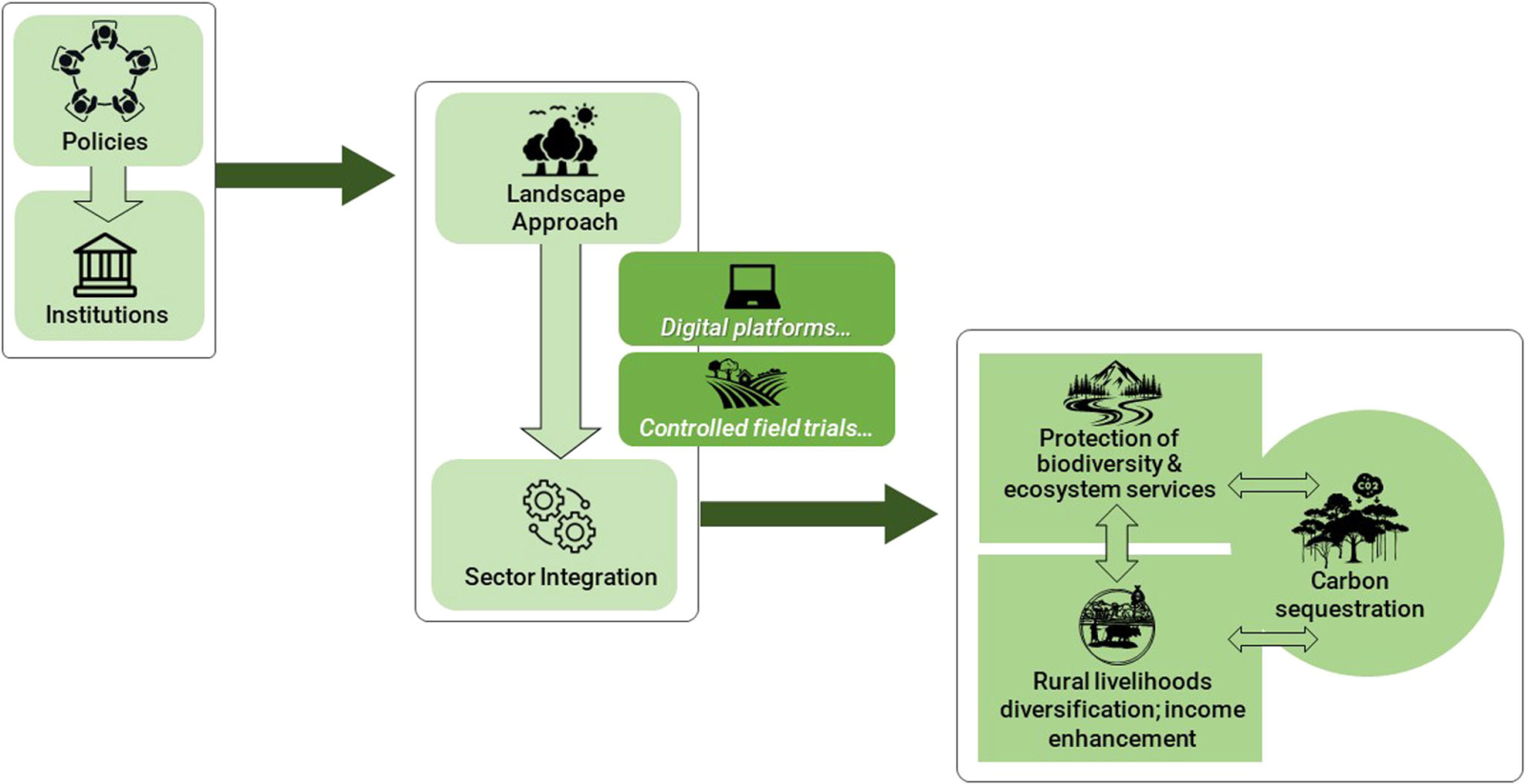July 18, 2023 | Communications Earth & Environment |
Introduction: Researchers from University of Massachusetts Boston in the USA proposed policy framework and pathways towards achieving agriculural sustainability in India. The proposed pathways include: 1) Build soil fertility with less synthetic fertilizer, 2) Reuse crop residue as raw material, 3) Reduce greenhouse gas emissions from livestock, 4) Promote agroforestry for carbon sequestration with co-benefits.
Key findings:
- There is an urgent need for new policy frameworks to revamp and enhance institutional networks and capacities to adopt landscape-systems approaches in agricultural research and resource management that promote sustainability, climate resilience, biodiversity, and ecosystem services. The scope extends beyond agroecosystems to include nearby ecosystems like forests, wetlands, abandoned fields, and urbanizing areas.
- Landscape-system research and source management needs to be based on field research across multiple agroecosystems, and interdisciplinary collaboration to create the knowledge commons can be facilitated by use of digital platforms.
- Field trials requiring a shift in research paradigm, should involve various stakeholders beyond agricultural scientists, such as farmers, local non-governmental organizations, and agencies, to collect large-scale farm-level data.
- Disseminate knowledge to stakeholders such as small farmers via digital platforms of existing civil societies.

Fig. | A simplified, schematic transformation pathway for Indian agricultural systems. The diagram outlines the flows of information and influence needed to generate large-scale outcomes incorporating biodiversity protection, livelihoods support and climate mitigation.





